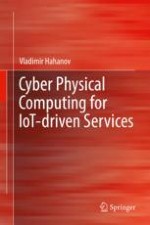2018 | OriginalPaper | Chapter
4. Qubit Description of Functions and Structures for Service Computing Synthesis
Authors : Ivan Hahanov, Igor Iemelianov, Mykhailo Liubarskyi, Vladimir Hahanov
Published in: Cyber Physical Computing for IoT-driven Services
Publisher: Springer International Publishing
Activate our intelligent search to find suitable subject content or patents.
Select sections of text to find matching patents with Artificial Intelligence. powered by
Select sections of text to find additional relevant content using AI-assisted search. powered by
